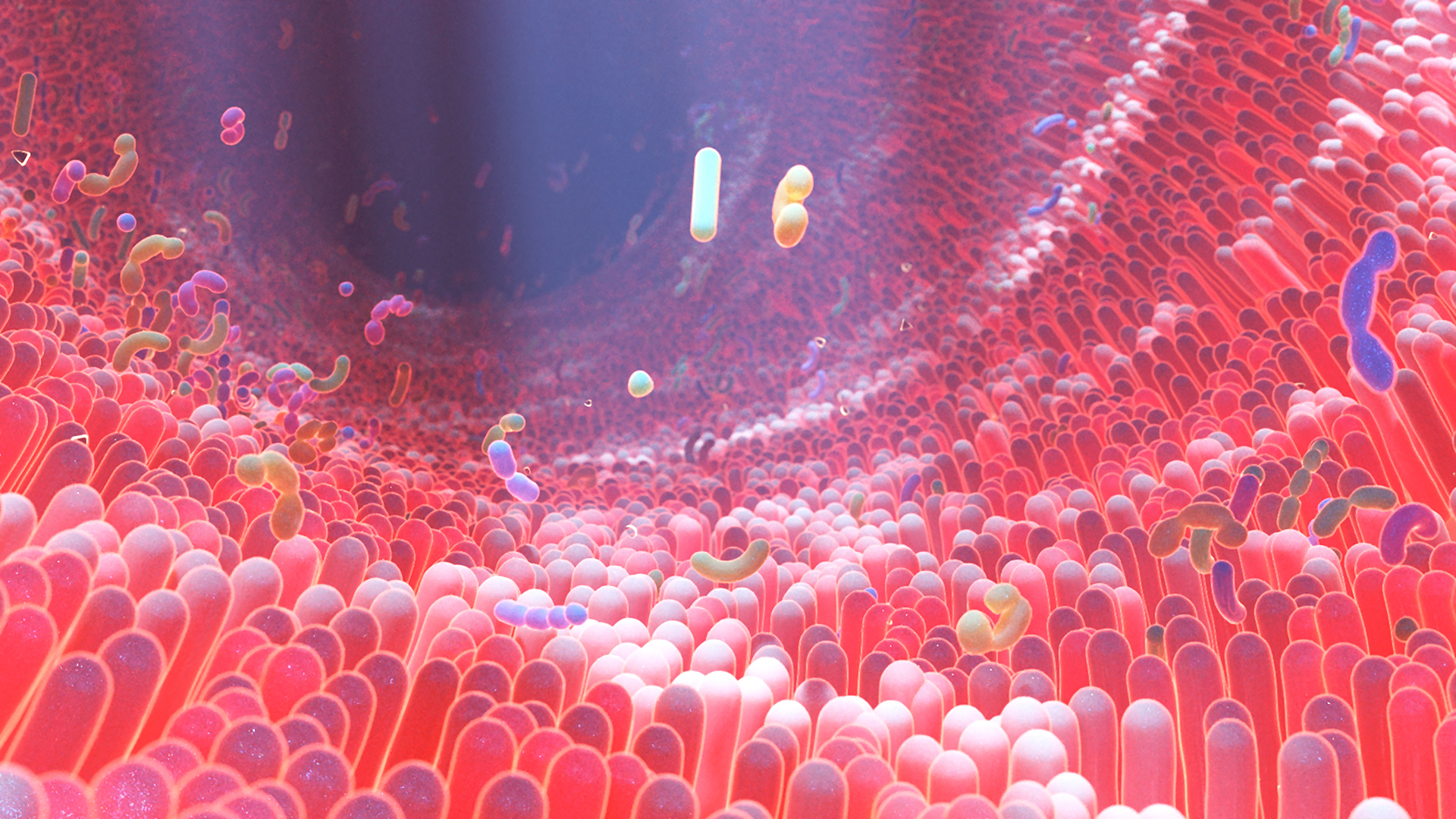The collection of microorganisms that colonizes the gastrointestinal (GI) tract is called gut microbiome. Development of microbiome starts from birth and changes in microbiome takes place with life event such as illness, antibiotic treatment and changes in diet. Approximately, 100 trillion microorganisms (bacteria, viruses, fungi, and protozoa) exist in the human gastrointestinal tract.
The bacteria in the microbiome help to:
- Digest our food and harvest energy from digested food
- Regulate our immune system
- Protect against pathogens
- Protect against other bacteria that cause disease
- Produce vitamin B12, thiamine and riboflavin, and Vitamin K, which is needed for blood coagulation.
The Role of Gut Microbiome
Gut microbiome ferments non-digestible fibers present in foods. The fermentation supports the growth of microorganisms that produce short-chain fatty acids (SCFAs). The body uses SCFAs as a nutrient source. SCFAs also play an important role in muscle function and possibly the prevention of chronic diseases, including certain cancers and bowel disorders. Clinical studies have shown that SCFAs may be useful in the treatment of ulcerative colitis, Crohn’s disease, and antibiotic-associated diarrhea.
Prebiotics: Feeding the Gut Microbiome
Prebiotics is a non-digestible food ingredient that is degraded by the gut microbiome and their degradation product is SCFAs. These prebiotics naturally exist in different dietary food products, including asparagus, sugar beet, garlic, onion, Jerusalem artichoke, wheat, honey, banana, barley, tomato, rye, soybean, human’s and cow’s milk, peas, beans, etc.
A high intake of prebiotic foods, if introduced suddenly, can increase gas production (flatulence) and bloating. Individuals with gastrointestinal sensitivities such as irritable bowel syndrome (IBS) should introduce these foods in small amounts to first assess tolerance. With continued use, tolerance may improve with fewer side effects.
Probiotics: Strengthening Gut Microbiome
Probiotic foods contain beneficial live microorganisms that may alter one’s microbiome. These foods include fermented foods like kefir, yogurt with live active cultures, pickled vegetables, kombucha tea, kimchi, miso, and sauerkraut.
Source
[1] Thursby E, Juge N. Introduction to the human gut microbiota. Biochem J. 2017 May 16;474(11):1823-1836. doi: 10.1042/BCJ20160510. PMID: 28512250; PMCID: PMC5433529.
[2] https://www.hsph.harvard.edu/nutritionsource/microbiome/
[3] Davani-Davari D, Negahdaripour M, Karimzadeh I, Seifan M, Mohkam M, Masoumi SJ, Berenjian A, Ghasemi Y. Prebiotics: Definition, Types, Sources, Mechanisms, and Clinical Applications. Foods. 2019 Mar 9;8(3):92. doi: 10.3390/foods8030092. PMID: 30857316; PMCID: PMC6463098.

Leave a Reply